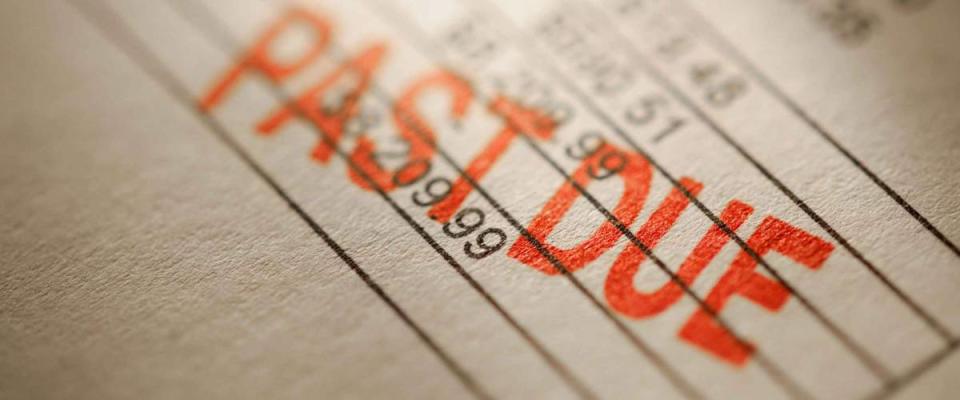Refinancing your mortgage can hurt your credit score. Here's what to do

Interest rates have taken a nosedive in 2020, one that’s been worth thousands of dollars a year to homeowners.
Mortgage rates are lower than ever, so you can refinance and save, even if you’ve had your current mortgage for just a matter of months.
To score the lowest rate you can, you’ll need to keep a strong credit score — which is something that can become more challenging after you refinance.
That’s because what happens in a refi is that your credit can easily drop.
Here are three reasons why, plus some solutions to soften the blow.
1. It results in multiple 'hard' inquiries

A lender will do a hard pull on your credit files when you apply for a new mortgage.
Every time you apply for a new loan, your lender will request your credit history from one of the three major credit bureaus, Equifax, Experian or TransUnion.
This is called a “hard inquiry,” and it will lower your credit score by several points each time, while typically staying on your report for 24 months.
You’ll definitely want to shop around and compare rate quotes to get the best deal. A study from mortgage giant Freddie Mac found that if you comparison shop to five lenders, you'll pay an average $3,000 less over time than someone who seeks out only one mortgage offer.
Checking rates is fine, but the trouble comes when apply for multiple mortgages.
How to solve this
Most credit scoring models treat all loan inquiries within a 30- to 45-day period as just one credit pull. So, submit all applications within that time period to lessen the hit to your score.
But some lenders might use older FICO scoring models, so consider keeping your inquiries to a 14-day limit.
The money you save refinancing should outweigh any dip to your score. With lower monthly payments, your credit score should improve over time as you maintain a strong payment history (worth 35% of your FICO score) and use your savings to help reduce your overall debt (which is responsible for 30%).
2. You close an old account (namely, your existing mortgage)

When you refinance, you close the book on your previous mortgage.
An estimated 19.3 million mortgage holders could refinance and cut their interest rates by at least three-quarters of a percentage point (0.75) — enough to reduce their monthly payments by an average $299, according to the mortgage data firm Black Knight.
But note that when you refinance your home loan, you’ll be closing one account to open a new one.
FICO factors in the age of your oldest account, and the average age across all accounts. That means closing a long-standing credit account could lower your score. New debts — even if you’re still making payments toward the same house — aren’t as valuable to your credit score.
How to solve this
As you pay down the new loan, your credit scores should creep back up — especially if your monthly payments are lower. Otherwise, you’ll need to be patient and wait for your other credit accounts to age, so the impact of a refinance on your score will lessen.
In the meantime, do use the savings from your new mortgage loan to service other debt. You’ll not only reduce the amounts you owe but you’ll also lower the percentage of your credit that you’re using, which is known as your credit utilization. Bringing that down works wonders for your score.
Generate even more savings to pay down debt by comparison shopping for homeowners insurance every time your policy comes up for renewal. You might find your current coverage at a much lower price.
3. You miss payments during your refinance

Some mortgage holders miss a payment when they're changing loans.
Some borrowers get in trouble by skipping a payment on their original mortgage when they (incorrectly) assume that refinance loan has gone through, Equifax says.
Because payment history is the most important factor in determining your credit score, missed or late payments can sink your score.
They can even stay on your credit report for as long as seven years.
How to solve this
Don’t stop making payments toward your old mortgage until you’re sure that your refinance has closed.
Stay in steady communication with your lenders and don’t assume the process will be done by a certain date.
Other ways to lift your credit score

If you have a lower-than-average credit score, you won’t be able to take advantage of rock-bottom mortgage rates. Here are four ways to bolster a sagging score:
Let the experts monitor your score. You can check your score and even get help monitoring it — for free. There are services that will provide you with not only a peek at your credit score but also access to free credit monitoring.
Consolidate your debt. Struggling with monthly payments? Nothing can drop your credit score quicker than late payments. A debt consolidation loan allows you to take out a new low-interest loan and use it to pay off all your high-interest debt.
Dispute errors on your reports. Request free copies of your credit reports and comb through them line by line to see if there’s any outdated or incorrect information. That could include loans you’ve already paid off or debt that’s not even yours.
Add to your credit mix. Lenders like to see a healthy blend of credit, such as mortgages, car loans and credit cards. A secured credit card can help you build your credit history, especially when you can’t get approved for the real thing. These cards are low-limit and require a deposit; if you compare offers, you can find one with attractive terms, like no annual fee and a minimum deposit amount that works for you.

 Yahoo Finance
Yahoo Finance 